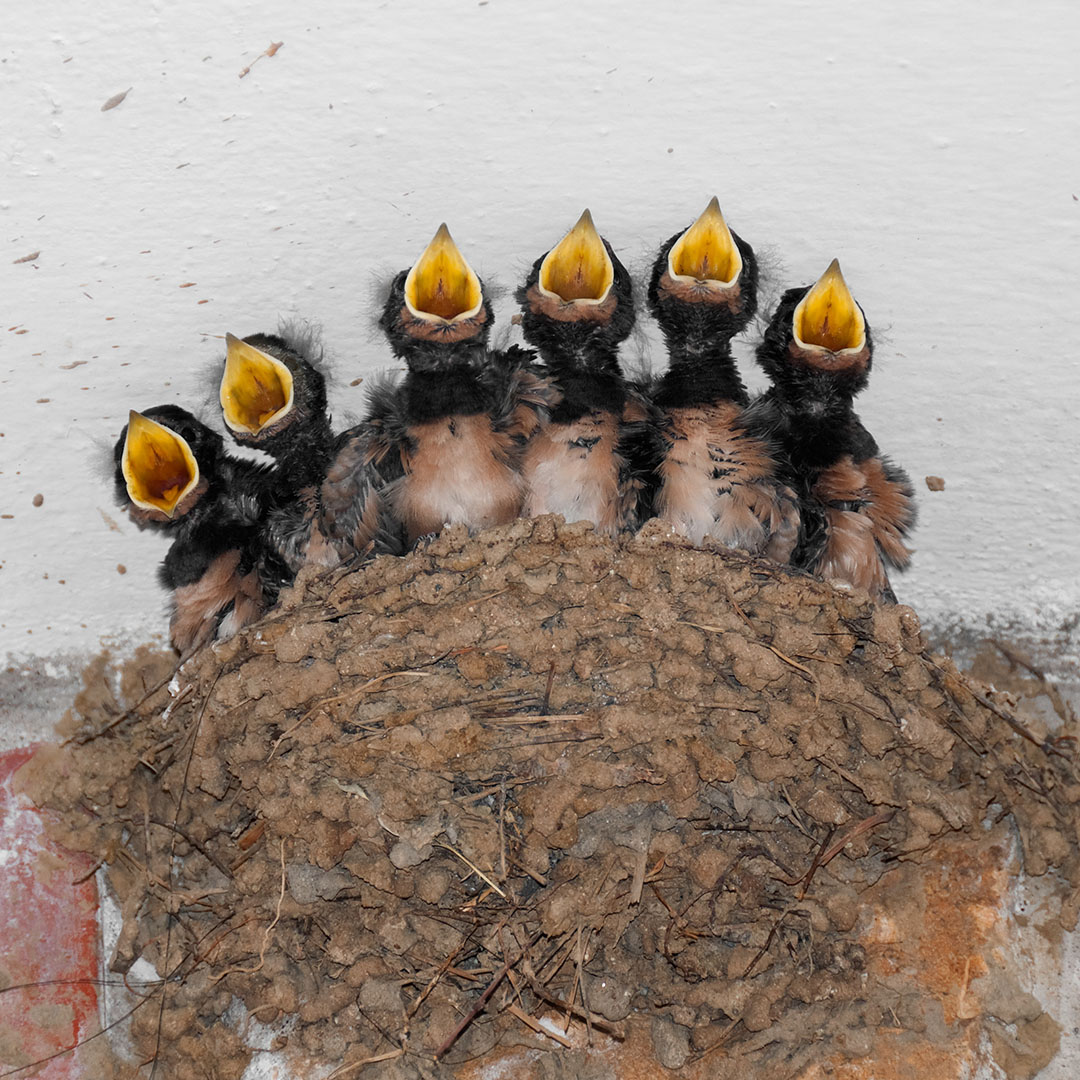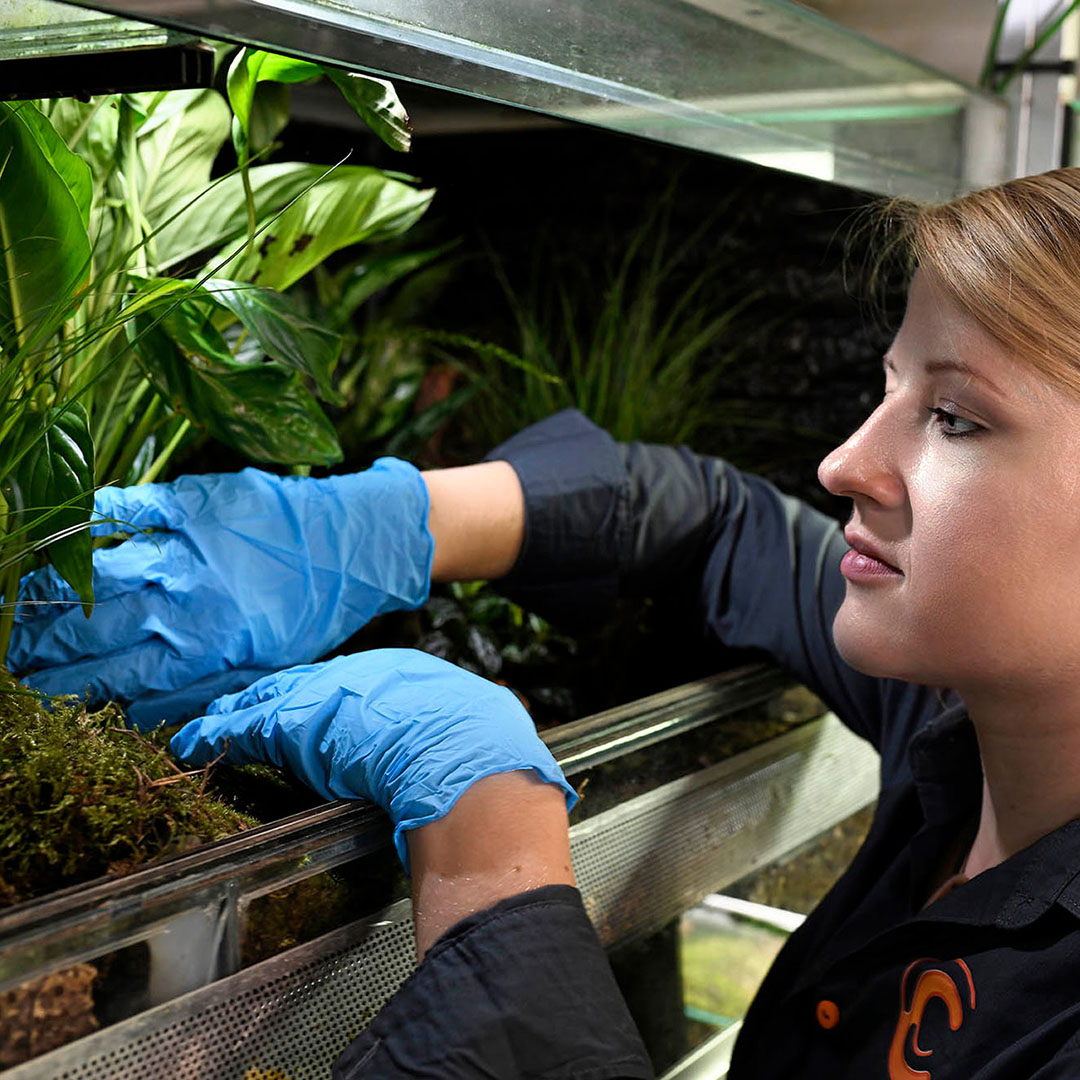Supporting CC
- Home
- Archive by Category "Participation"
Participation
Become a part of species conservation. Your donation will help us develop the Citizen Conservation breeding program.
Become a part of species conservation. Your donation will help us develop the Citizen Conservation breeding program.
To continue developing our projects, we appreciate every donation!
Competently breeding and caring for animals is a big responsibility – and a necessary one. Citizen Conservation (CC) is a network of private and professional breeders. The program was created by zoo employees, scientists, and private enthusiasts that are all convinced it is high time to join forces and tackle the challenge of species extinction. By supporting these people, you will help Citizen Conservation take off.
There's one thing each and every one of us can do
This is as easy as it is hard to face. We need to admit to ourselves that it has become impossible for us to preserve great numbers of animal species in the wild. We live in the Anthropocene Epoch and we humans are everywhere. “The wild” has ceased to exist, however much we wish for the contrary. In order to sustainably work against the mass extinction of species, we need to engage in conservational breeding and further expand Citizen Conservation. Fighting extinction together.
Become a CC Sponsor for 40 Euros a year
Establishing coordinated conservational breeding for threatened species is a key concern of Citizen Conservation. With our partner Frogs & Friends, we have therefore initiated sponsorships through which you can directly engage in the support of our work against species extinction.
As a special Thank You for each yearly sponsorship, we will deliver you a high-quality, illustration or photo print in a picture mount, each numbered and in limited edition.
And it’s as simple as this: send an email to patenschaft |at| frogs-friends.org including your address and your preferred motif and transfer your donation to:
Citizen Conservation
GLS Gemeinschaftsbank eG
Keyword “Sponsorship” + your name
IBAN: DE38 4306 0967 1271 7068 00
BIC: GENODEM1GLS
You may also use PayPal.
As soon as the money is registered, we will send out your picture gift.
Thank You for Sponsorship – 19 motifs to choose from!
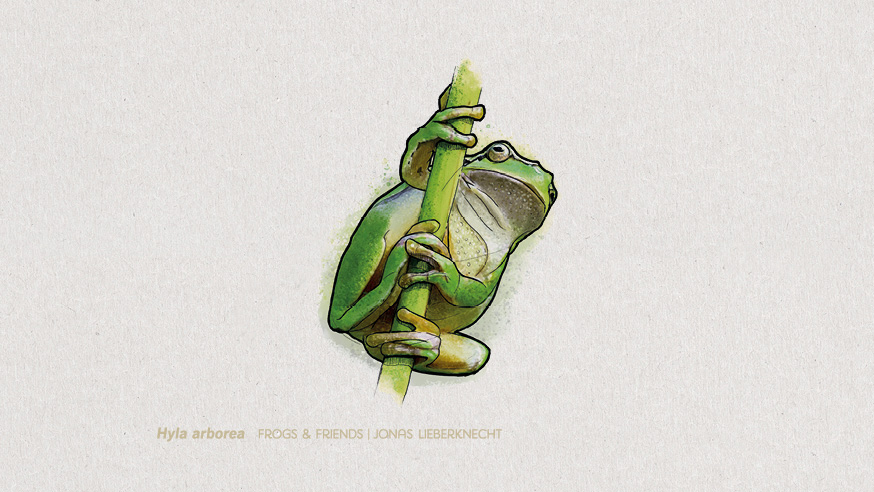
No. 1: European Tree Frog
(Hyla arborea)
© Jonas Lieberknecht(A6 postcard format in picture mount)
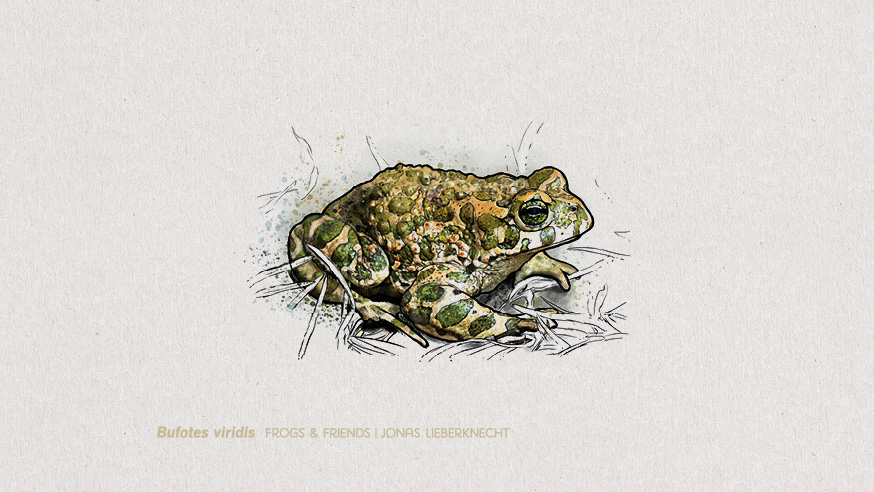
No. 2: European Green Toad
(Bufotes viridis)
© Jonas Lieberknecht(A6 postcard format in picture mount)
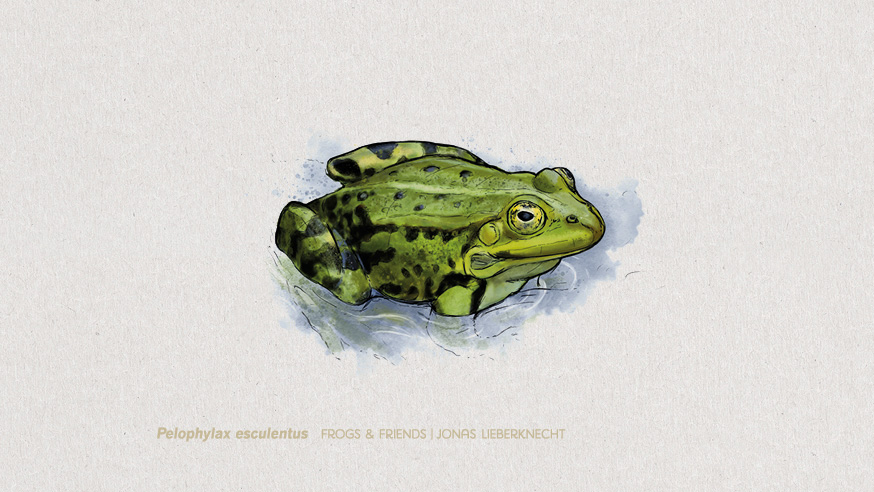
No. 3: Common Water Frog
(Pelophylax esculentus)
© Jonas Lieberknecht(A6 postcard format in picture mount)
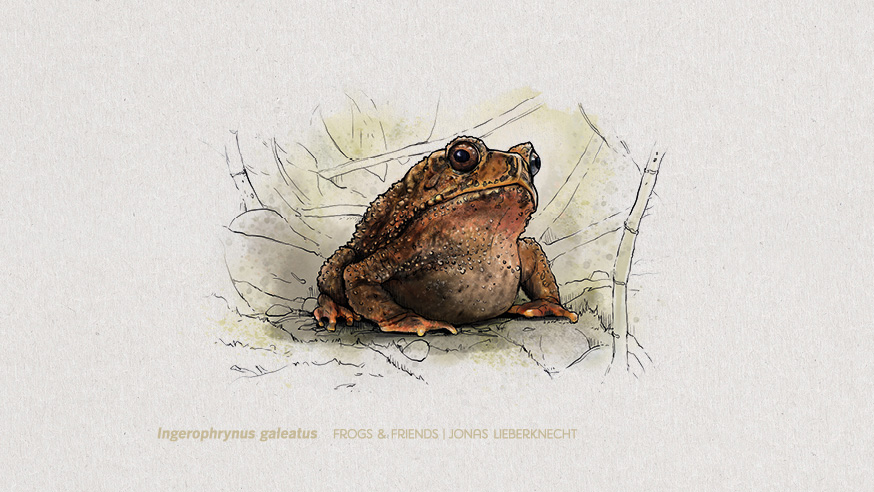
No. 4: Bony-headed Toad
(Ingerophrynus galeatus)
© Jonas Lieberknecht(A6 postcard format in picture mount)
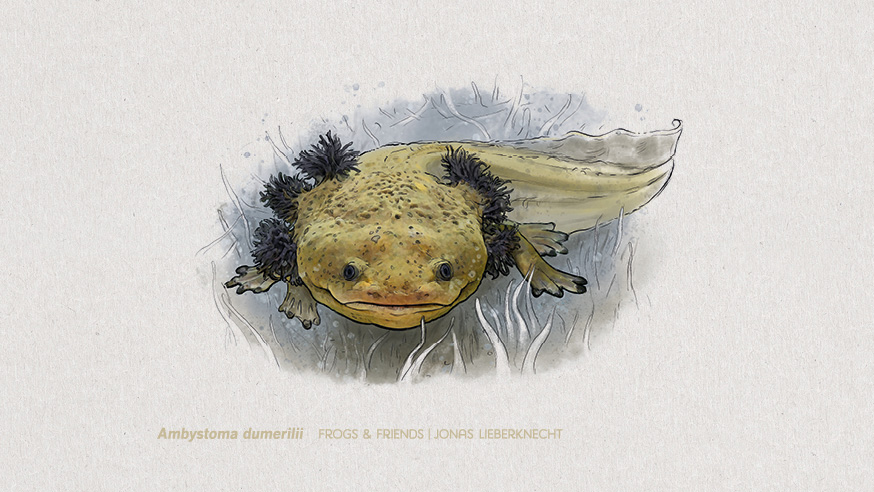
No. 5: Lake Patzquaro Salamander
(Ambystoma dumerilii)
© Jonas Lieberknecht(A6 postcard format in picture mount)
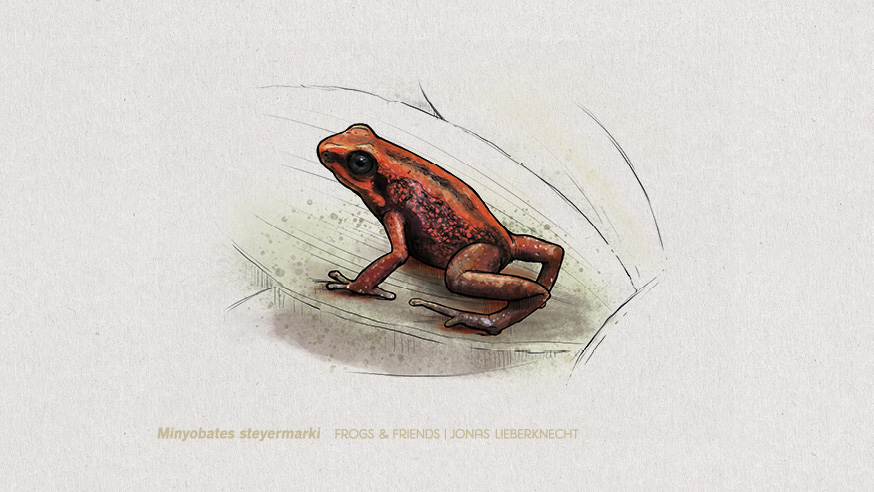
No. 6: Demonic Poison Frog
(Minyobates steyermaki)
© Jonas Lieberknecht(A6 postcard format in picture mount)
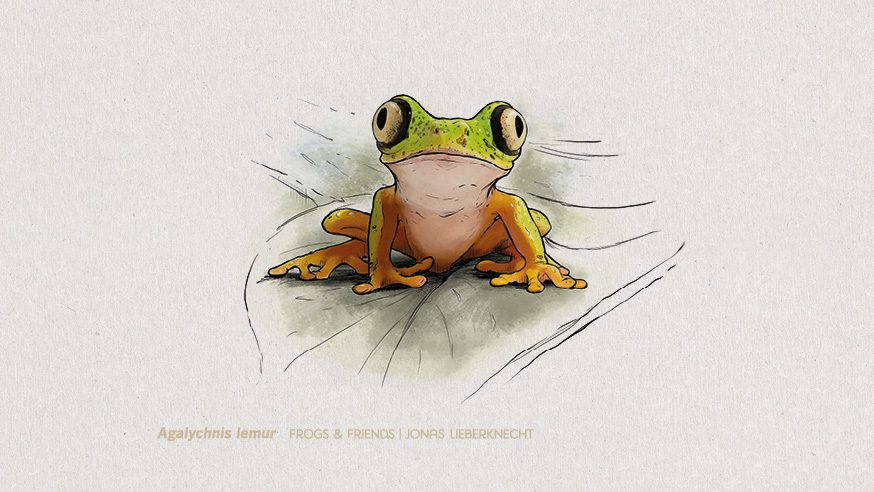
No. 7: Lemur Leaf Frog
(Agalychnis lemur)
© Jonas Lieberknecht(A6 postcard format in picture mount)
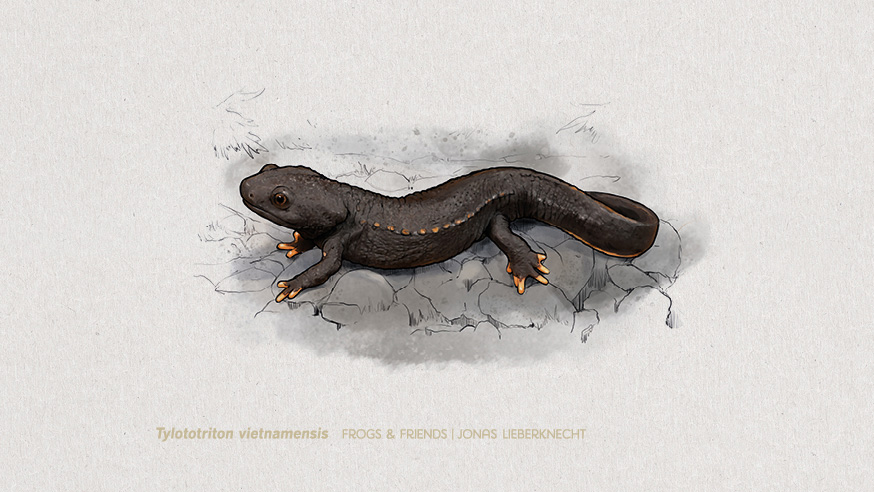
No. 8: Vietnamese Crocodile Newt
(Tylototriton vietnamensis)
© Jonas Lieberknecht(A6 postcard format in picture mount)
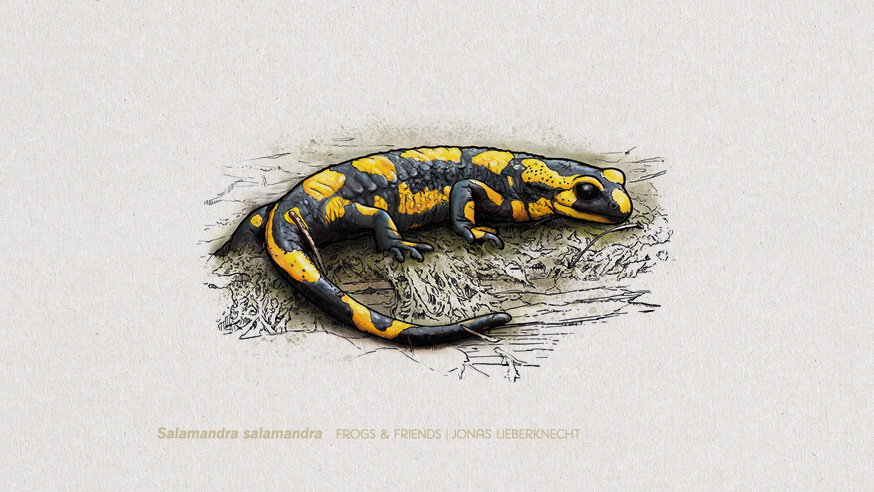
No. 9: Fire Salamander
(Salamandra salamandra)
© Jonas Lieberknecht(A6 postcard format in picture mount)
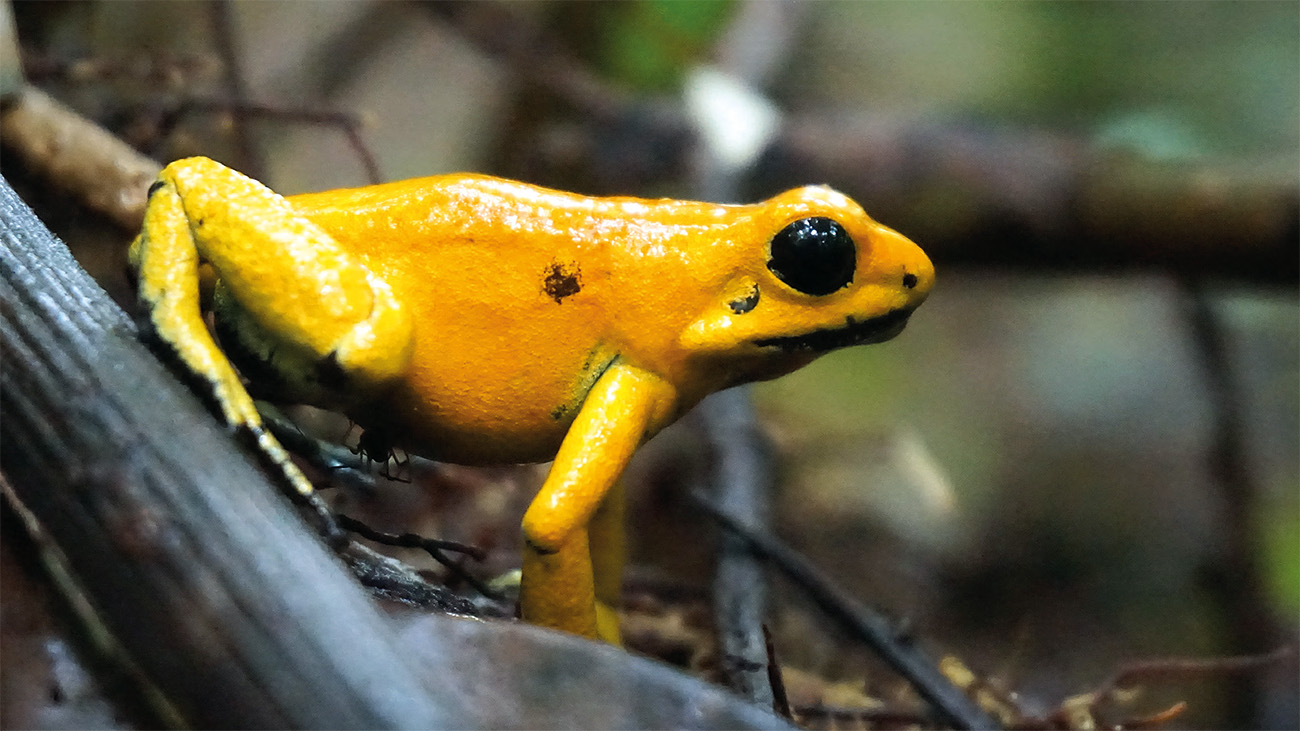
No. 10: Golden Poison Dart Frog
(Phyllobates terribilis)
© Björn Encke(15 x 20 in a A4 picture mount)
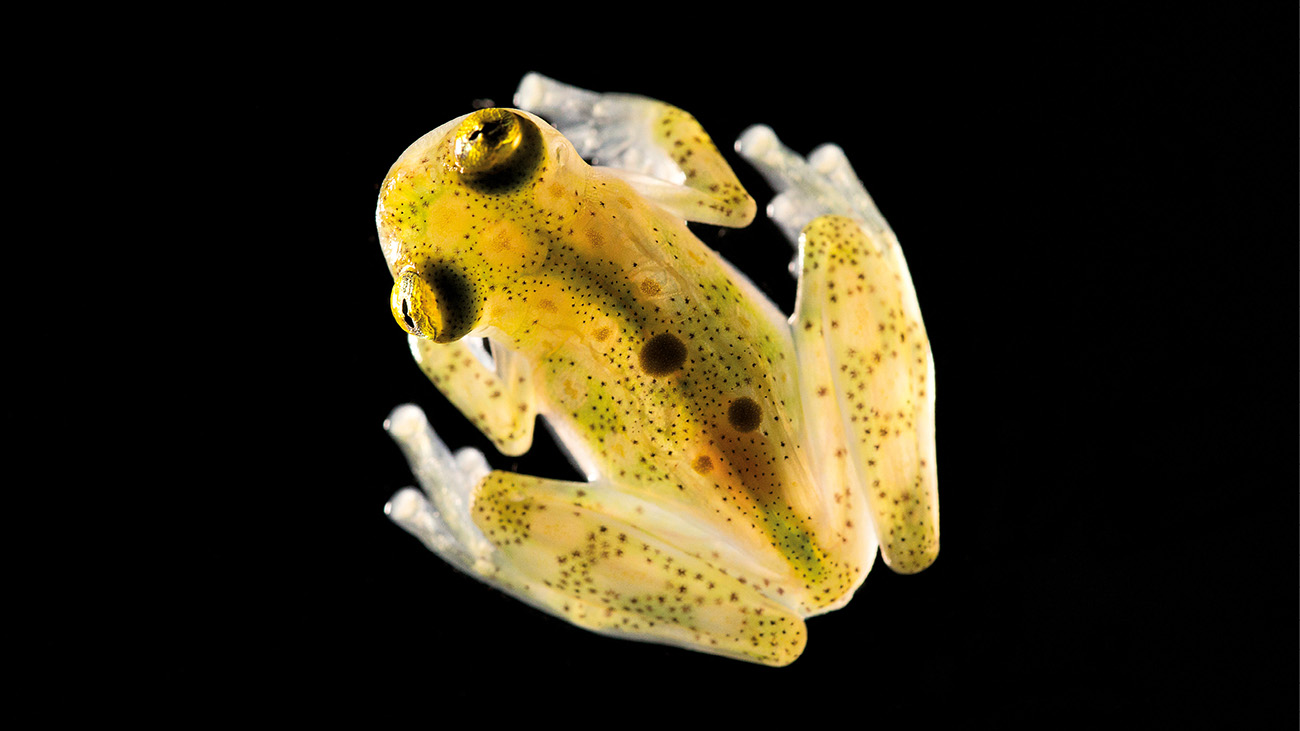
No. 11: Glass Frog from above
(Hylalinobatrachium aureogutatum)
© Peter Gröne(15 x 20 in a A4 picture mount)
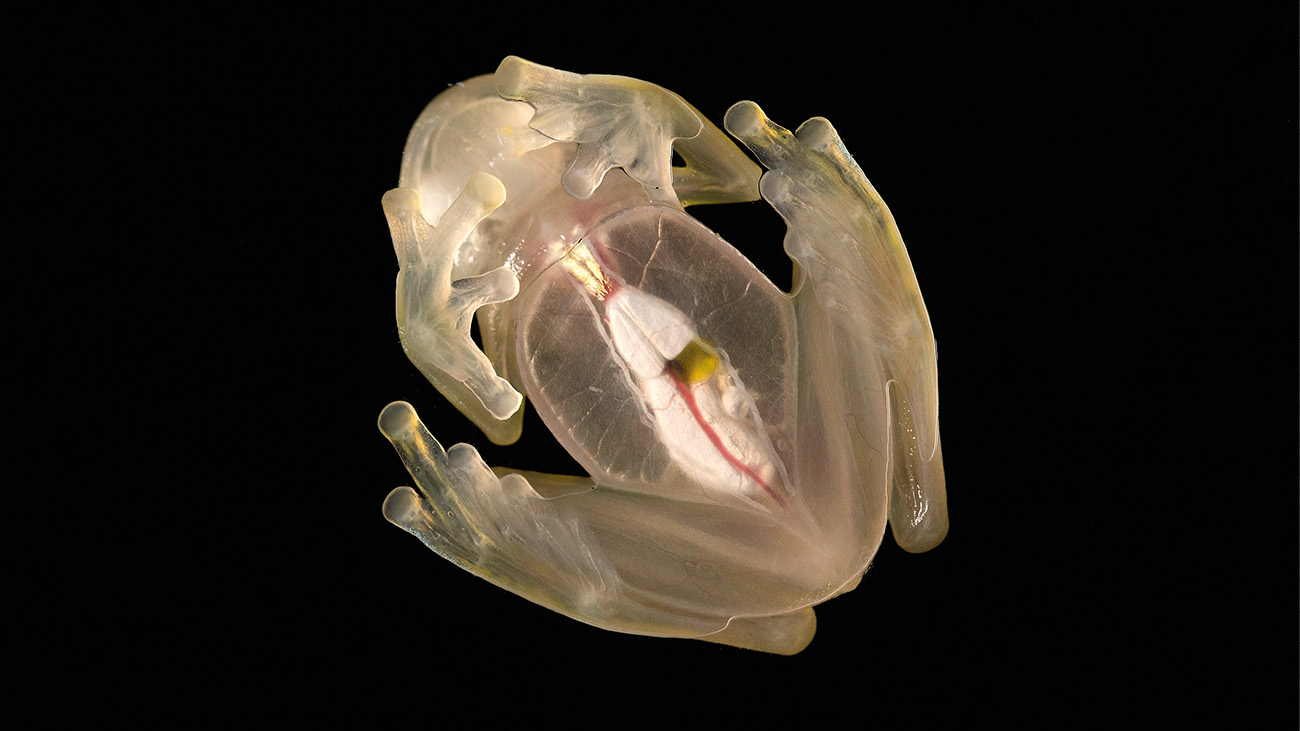
No. 12: Glass Frog from below
(Hylalinobatrachium aureogutatum)
© Peter Gröne(15 x 20 in a A4 picture mount)
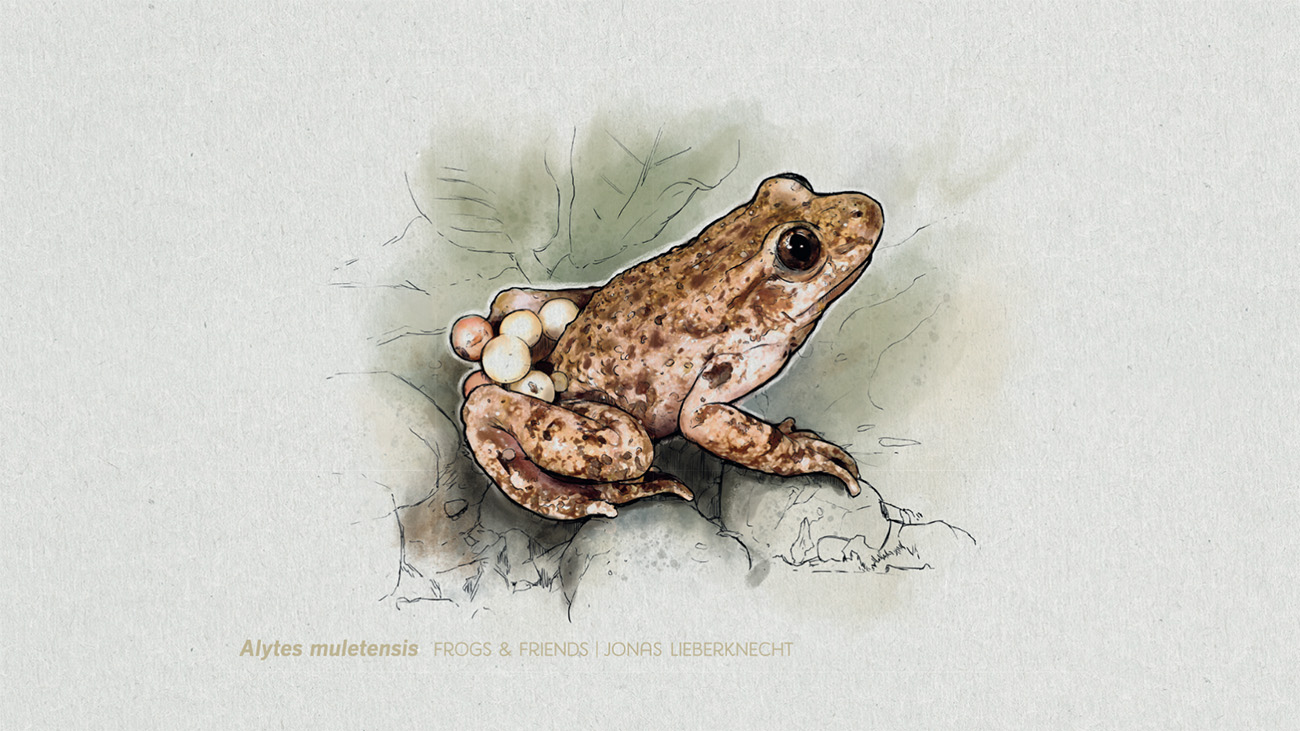
No. 13: Mallorcan Midwife Toad
(Alytes muletensis)
© Jonas Lieberknecht(A6 postcard format in picture mount)
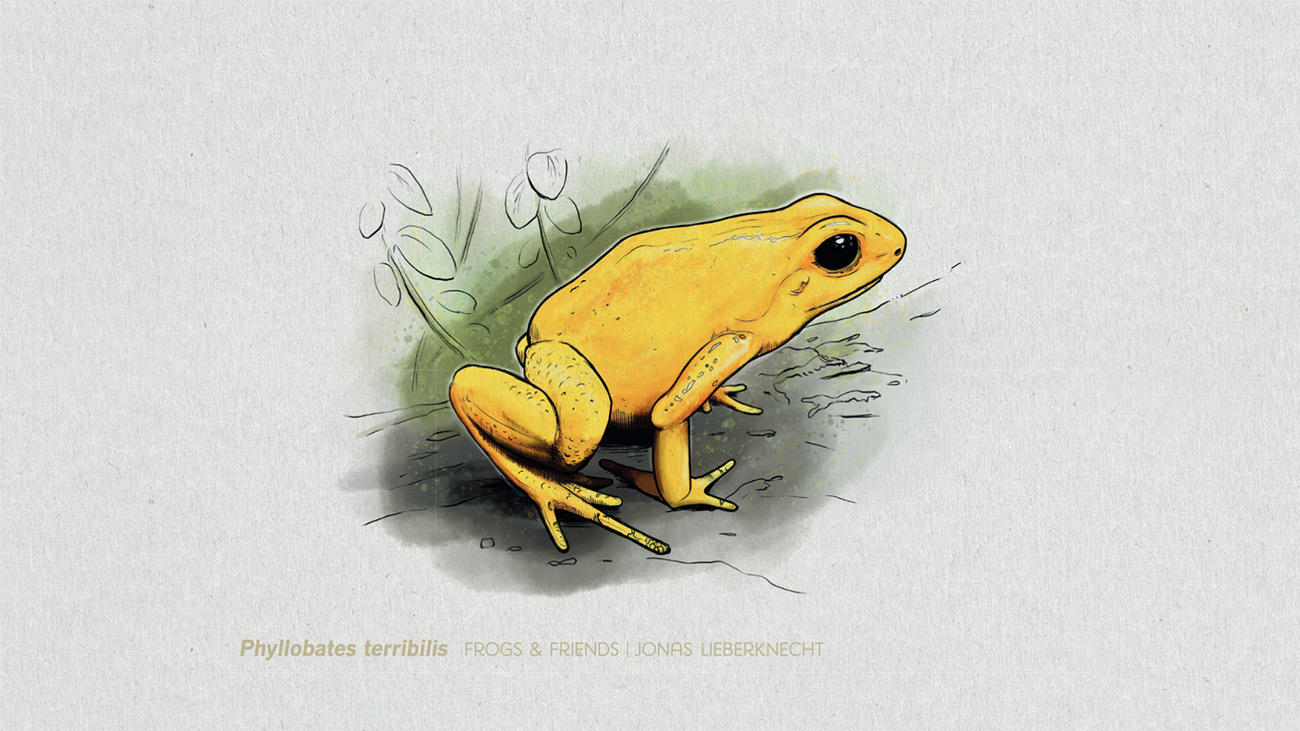
No. 14: Golden Poison Frog
(Phyllobates terribilis)
© Jonas Lieberknecht(A6 postcard format in picture mount)
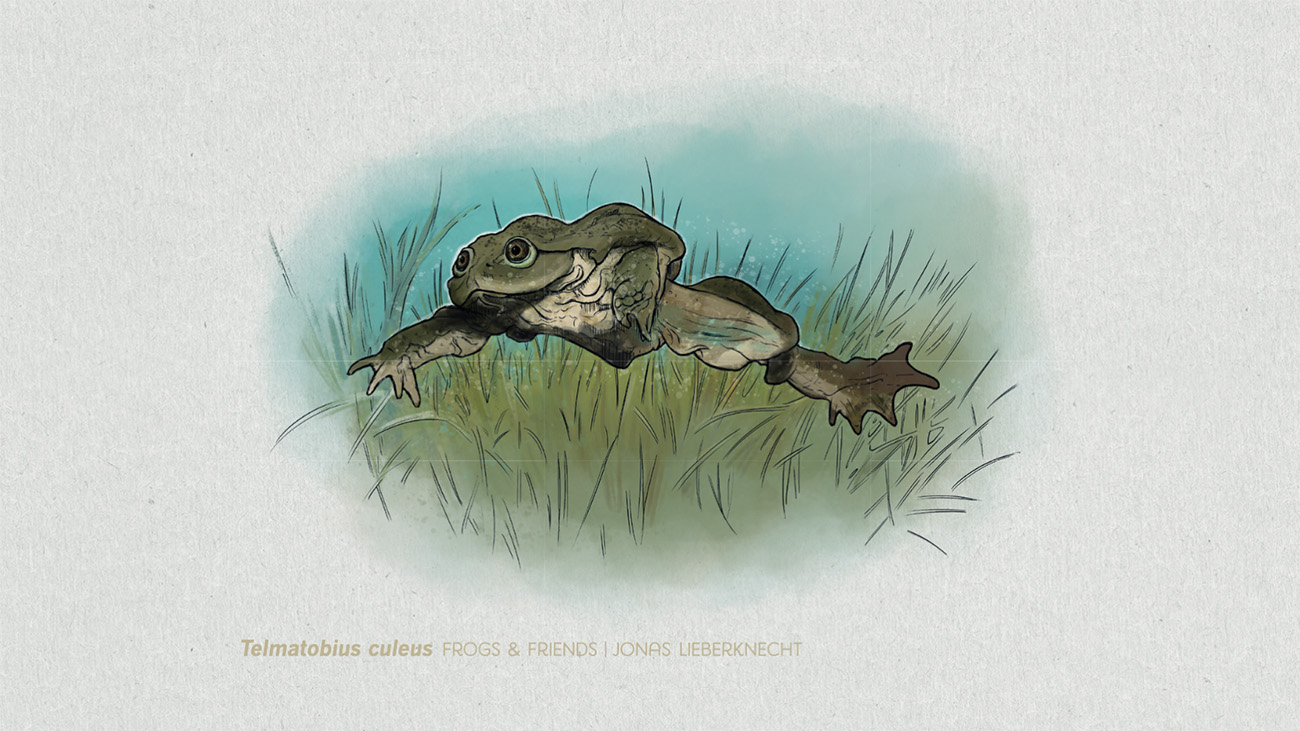
No. 15: Titicaca Water Frog
(Telmatobius culeus)
© Jonas Lieberknecht(A6 postcard format in picture mount)
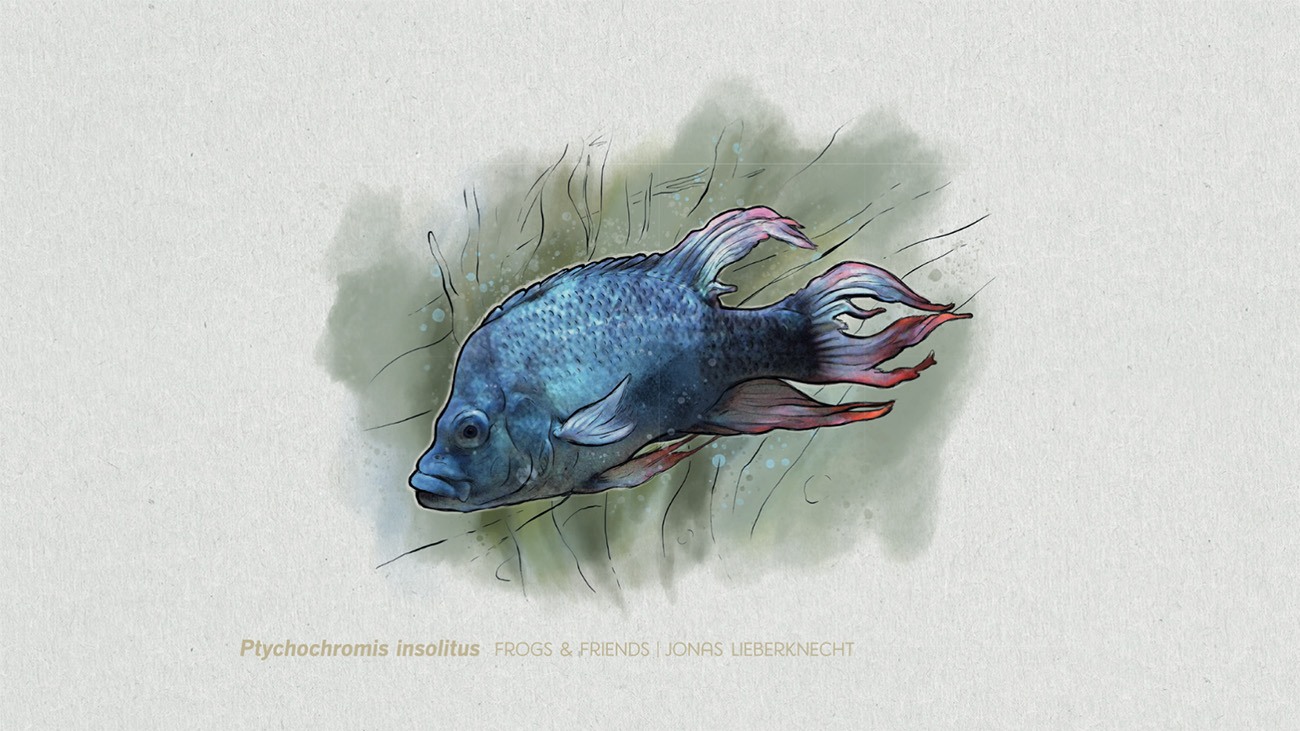
No. 16: Mangarahara Cichlid
(Ptychochromis insolitus)
© Jonas Lieberknecht(A6 postcard format in picture mount)
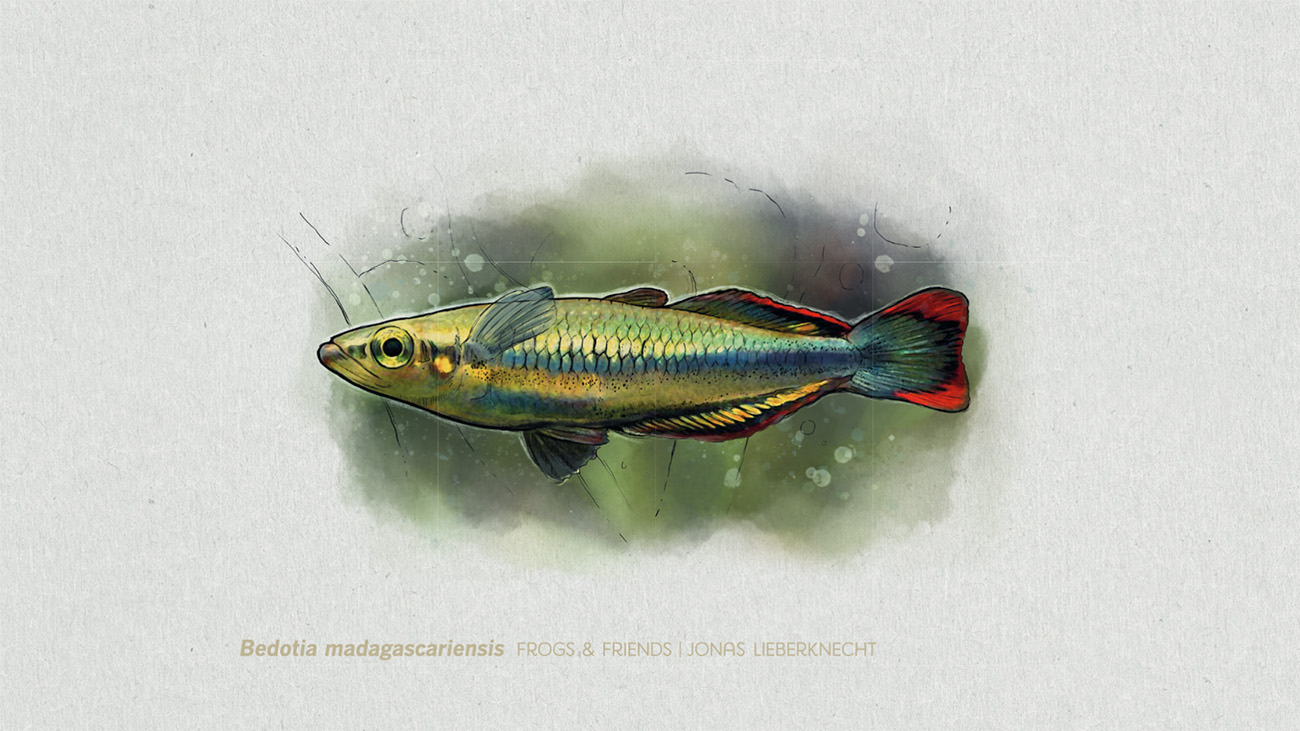
No. 17: Madagascan Rainbowfish
(Bedotia madagascariensis)
© Jonas Lieberknecht(A6 postcard format in picture mount)
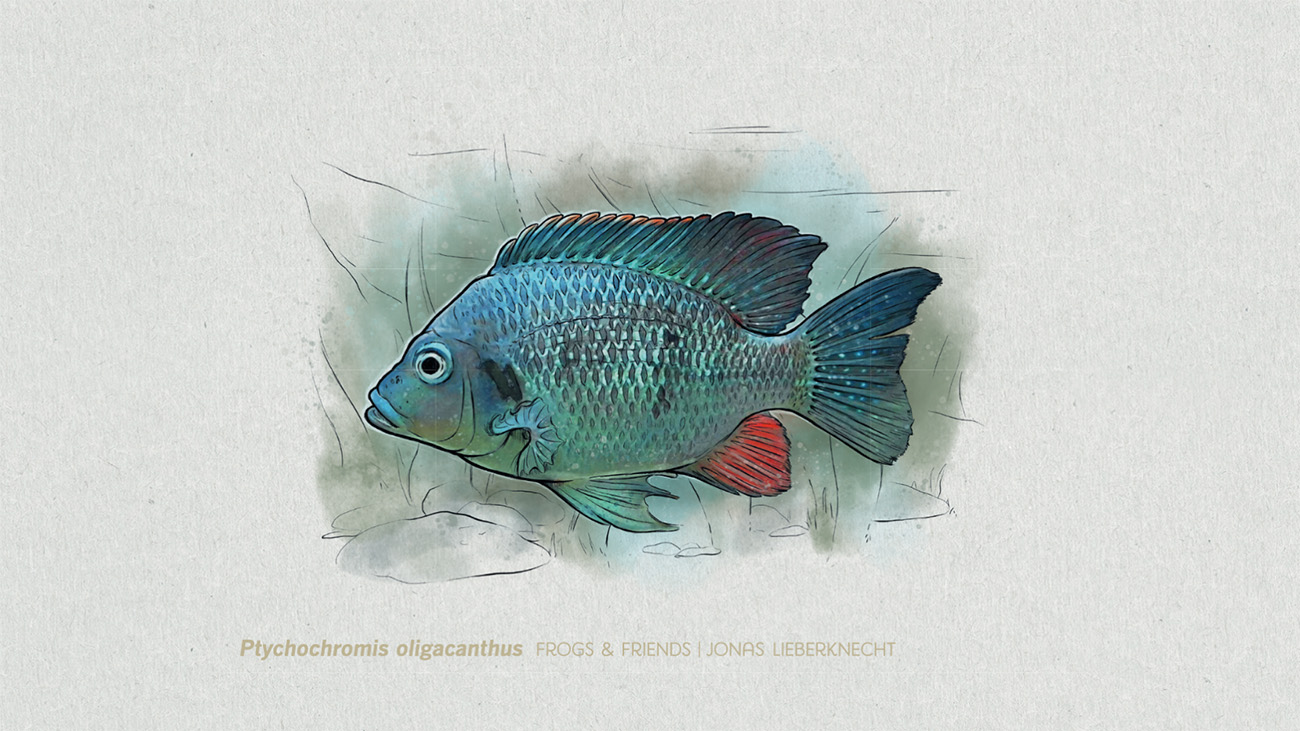
No. 18: Nosy Be Cichlid
(Ptychochromis oligacanthus)
© Jonas Lieberknecht(A6 postcard format in picture mount)
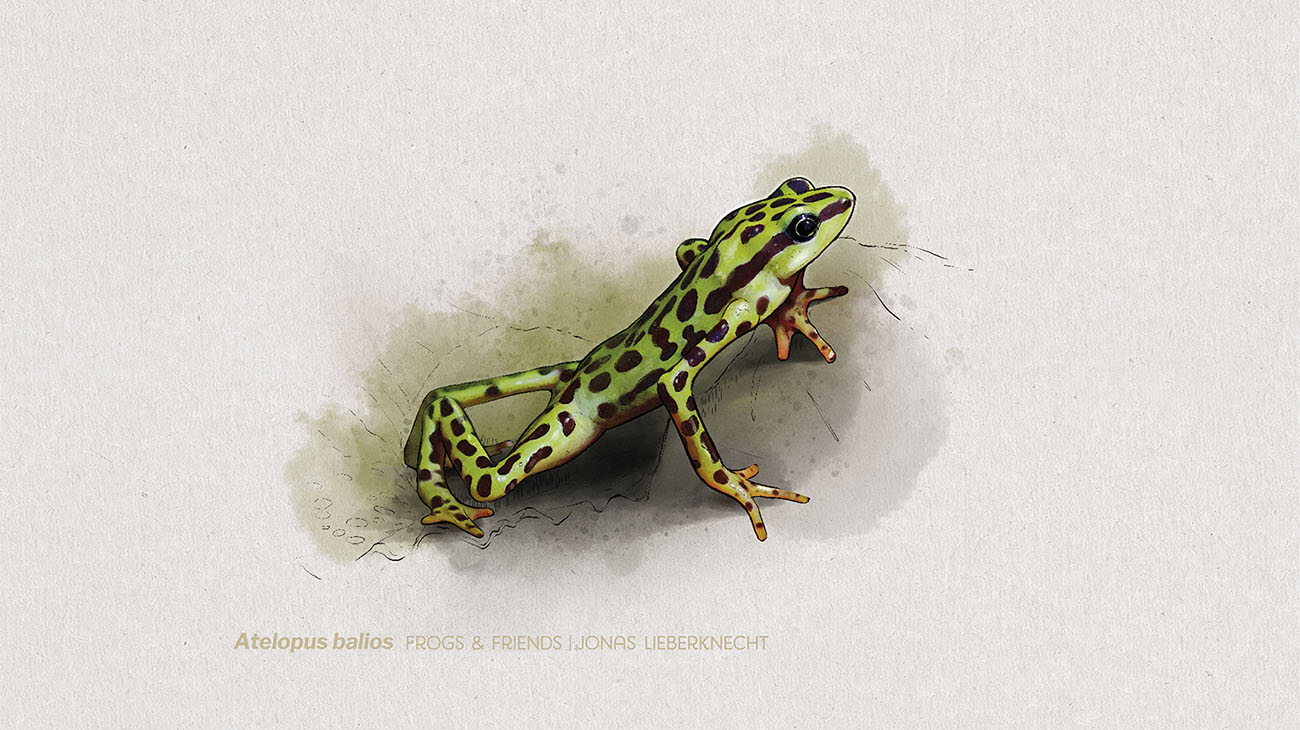
No 19: Rio Pescado Harlequin Toad
(Atelopus balios)
© Jonas Lieberknecht(A6 postcard format in picture mount)
Collection & sponsorship duration
There will be new motifs on a regular basis – you can start your own collection. Of course you may also sign up for more than one sponsorship.
We will not renew sponsorships, so you don’t need to cancel. You decide if you want to support us for more than a year, for example by setting up a standing bank order.
Our financing
The basic funding for Citizen Conservation is provided by the three shareholders: the Association of Zoological Gardens, Frogs & Friends and the German Society for Herpetology and Herpetoculture – as well as financial support from various partners. More information on our organisation page.
However, we are dependent on donations for the further and sustainable expansion of the programme. Every donation helps!
Most of our finances are spent on:
Our donation account
Citizen Conservation | GLS Gemeinschaftsbank eG | DE38 4306 0967 1271 7068 00 | BIC: GENODEM1GLS
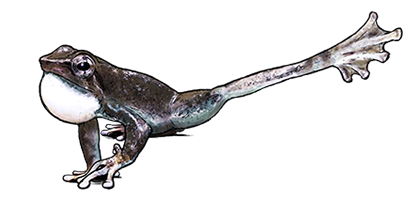
Our donation account
Citizen Conservation | GLS Gemeinschaftsbank eG | DE38 4306 0967 1271 7068 00 | BIC: GENODEM1GLS

Help us start a movement
Thousands of species are on the verge of extinction. Zoos cannot save them all on their own. That’s why Citizen Conservation wants to start a movement everyone can become a part of! Experienced breeders can support programs for highly endangered and rare species, while newcomers can breed less demanding species. They all send a message to the world about the threat to biodiversity, with the best ambassadors possible: themselves! Every donation helps us:
- build stable populations of endangered species in captivity
- respond quickly in acute crisis situations, such as the outbreak of a deadly disease
- take away the business foundation of illegal wildlife trade
- promote the cause of endangered species
We appreciate every donation, as they all help us continue to develop our projects. Of course, we are happy to issue receipts for your tax-deductible contributions. Please let us know if you need one.
Our mission
The extinction of species is threatening our livelihoods. Citizen Conservation unites scientific expertise with engagement by civil society. Together, we can master the challenge.
Becoming a breeder
- Home
- Archive by Category "Participation"
Participation
At Citizen Conservation, professionals and private enthusiasts work hand in hand. You’ll find information on how you can participate here.
At Citizen Conservation, professionals and private enthusiasts work hand in hand. You’ll find information on how you can participate here.
Becoming a conservationist
Thousands of species are on the verge of extinction. Many animals can no longer survive in the wild. Zoos are working hard to conserve animals through captive breeding, but their capacities and resources are limited. Many private breeders have space, time, passion, and knowledge. Citizen Conservation (CC) unites private and professional conservationists in the fight against extinction. You, too, can breed an endangered species at home, and help it survive the next century.

Expert knowledge and accomodation
Every private breeder with some expertise and the necessary equipment can participate in protecting and conserving endangered animals.

Breeding
The animals are the property of Citizen Conservation but are bred by participants according to our recommendations. We will arrange accommodations for the offspring.

Coordination and Management
You report your breeding results back to us, and we manage the animals and data according to our breeding experience. We assemble the breeding groups and ensure the conservation of their genetic diversity.
Requirement: Expertise
Breeders have to have a certain level of expertise. Please contact us to find out if you meet the requirements for a breeder. We also accept certificates of competence, from organizations such as the VDA/DGHT.
Requirement: Appropriate Accommodation
Please describe the equipment and technology that you have available so we can ensure the animals will be accommodated appropriately. We are glad to give you advice about how you can improve or enhance your equipment to meet our requirements.
Requirement: Communication
Experiences have to be shared. Citizen Conservation breeding recommendations are based on current scientific expertise and are continually updated, not least thanks to the insights of Citizen Conservation participants.
Requirement: Expertise
Breeders have to have a certain level of expertise. Please contact us to find out if you meet the requirements for a breeder. We also accept certificates of competence, from organizations such as the VDA/DGHT.
Requirement: Appropriate Accommodation
Please describe the equipment and technology that you have available so we can ensure the animals will be accommodated appropriately. We are glad to give you advice about how you can improve or enhance your equipment to meet our requirements.
Requirement: Communication
Experiences have to be shared. Citizen Conservation breeding recommendations are based on current scientific expertise and are continually updated, not least thanks to the insights of Citizen Conservation participants.
The right animal for everyone
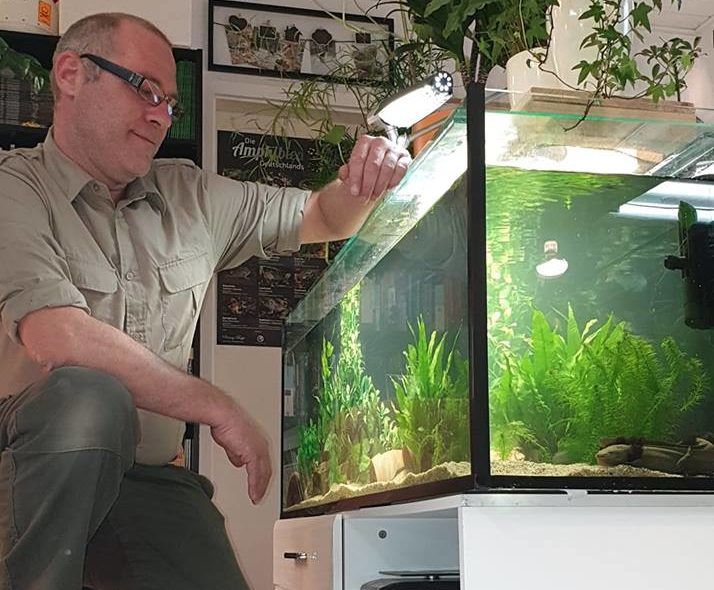
General Counsel Oliver Witte breeds Lake Patzcuaro Salamanders. © Oliver Witte
Have you done a lot of research, but you don’t have any practical experience yet? Or have you been breeding wild animals for years? We have the right species for everyone. To make your decision easier, the species in Citizen Conservation are divided into three categories:
Category I
Only for specialists and / or for animals that cannot be bred outside of Citizen Conservation.
Category II
For advanced animal breeders with practical experience; the animals may possibly be redistributed by Citizen Conservation.
Kategorie III
Easy to breed successfully without prior experience, but with the appropriate expertise; the animals can be redistributed by Citizen Conservation.
On the Species page you can take a closer look at the species currently in the program.
Bio Security
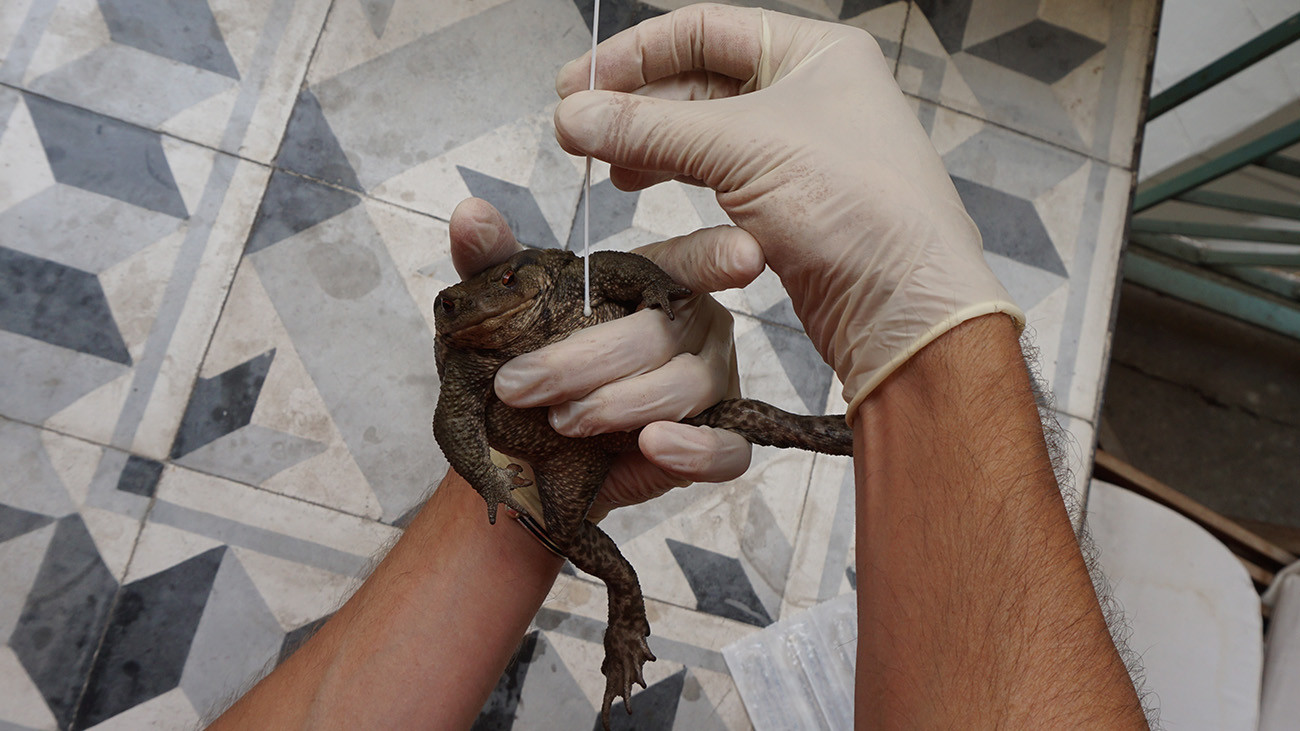
Sampling a Common Toad © Susanne Knakowske, Frogs & Friends
Diseases and epidemics are a serious problem for conservation breeders. Therefore, Citizen Conservation finances the testing of all animals according to veterinary recommendations before they change locations. The breeder sends the required samples to Citizen Conservation’s partner laboratory to analyze. The animals can be passed on after they are cleared by the lab. This process ensures that the participants receive healthy animals (insofar as the lab can guarantee) and that no epidemic or dangerous parasites are spread through Citizen Conservation.
Practical Information: Animal Transfers
Once all the requirements are met and the animals are ready to be transferred, the participant will sign a contract with Citizen Conservation. The participant will organize and finance the transfer of the animals from the previous breeder.
Practical Information: Coordination and Inventory
The breeder regularly (usually twice a year) communicates his or her inventory to Citizen Conservation. This includes new offspring, death, or other observations. Citizen Conservation publishes this information and manages the development of the animal populations.
Practical Information: Relocation
All animals and their offspring are the property of Citizen Conservation. Usually, participants keep the animals they breed for however long they like, but the offspring are transferred to a new breeder in accordance with Citizen Conservation regulations.
Animal distribution
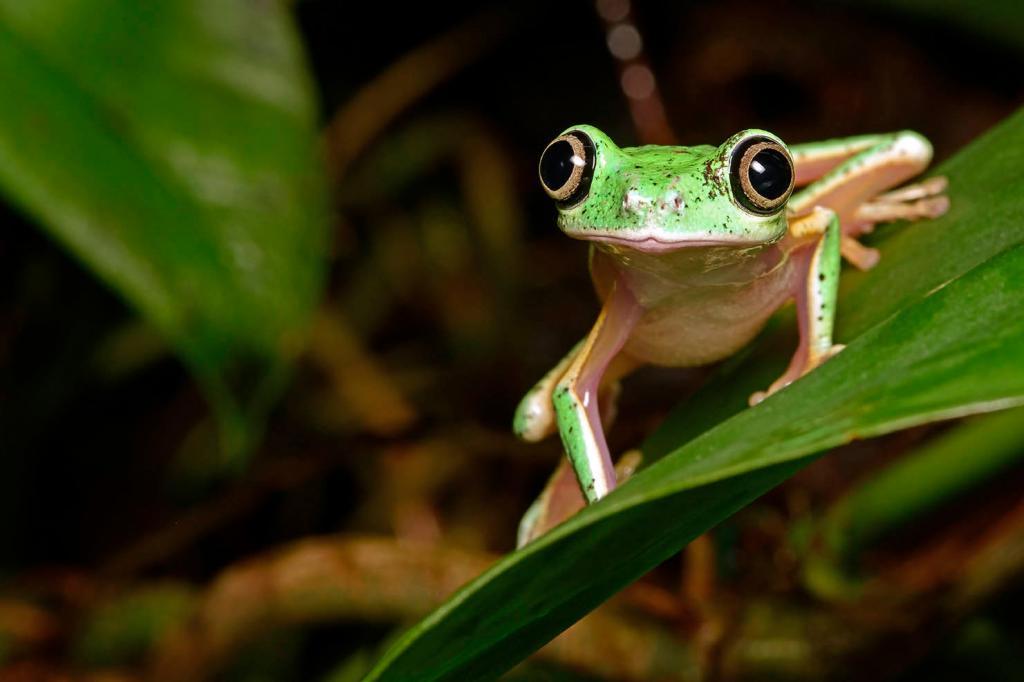
Lemur Leaf Frog © Benny Trapp, Frogs & Friends
Our experts have defined goals for the number of animals and breeders for each species. Until we have reached these goals, the offspring bred within the program have to stay within the Citizen Conservation framework. If the breeding program produces more animals than the goal Citizen Conservation has set, they can be redistributed to other breeders. In this way, healthy animals from our breeding programs can be available to people outside the program in order to reduce wild hunting. Species from Category I cannot be redistributed.
Cooperations
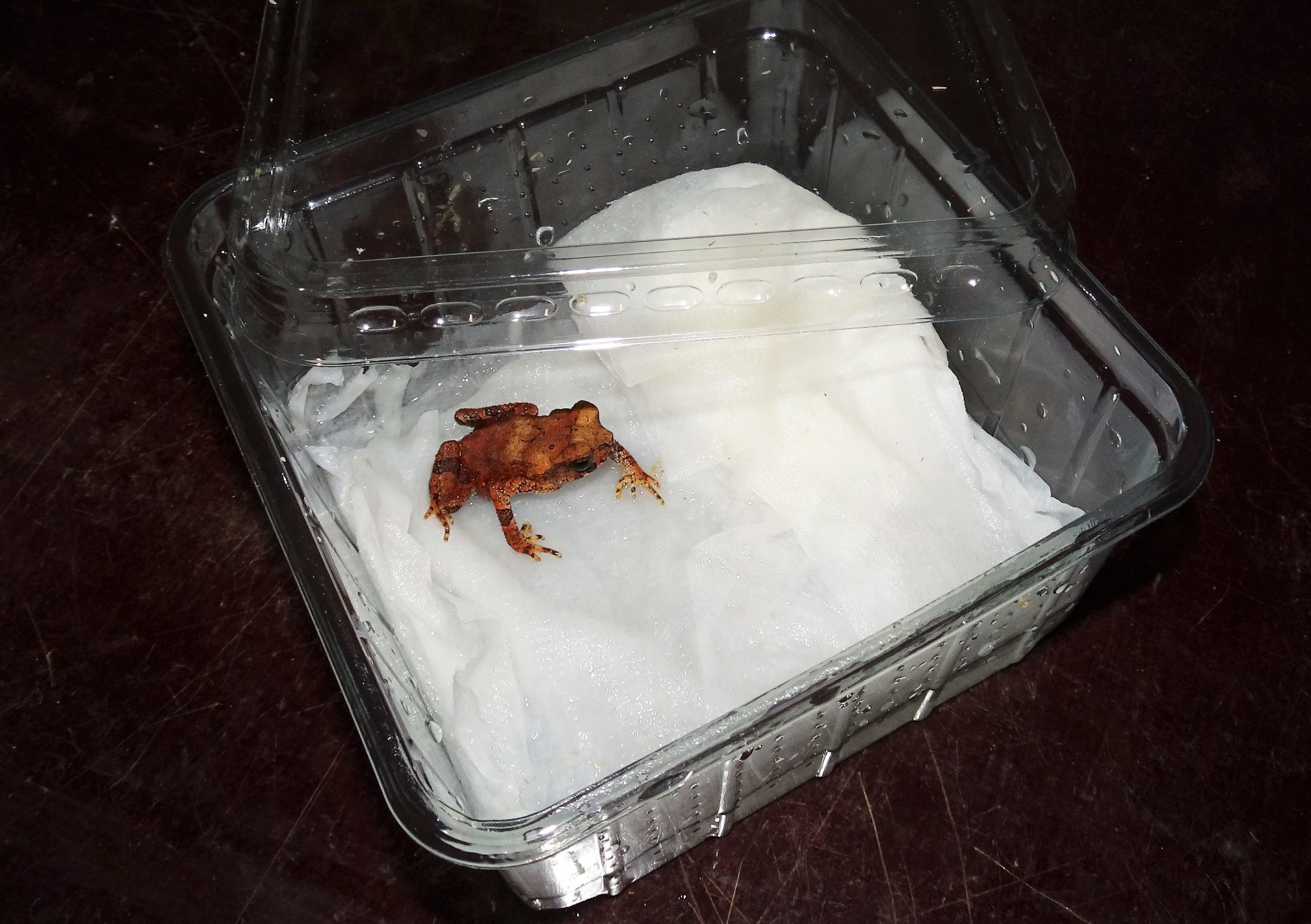
Toad migration © Anne Rauhaus
IKS, Internationaler Kurier Service GmbH, is a company that operates in the transport and logistics sector. Since 2002, IKS has been transporting small animals safely, carefully and reliably and, of course, in compliance with the applicable animal welfare transport regulations.
Our cooperation with IKS results in several advantages for CC participants. In addition to the safe shipping of animals in Germany and the surrounding area, pet owners receive a discount on the transport of their animals. Our active participants receive this discount not only on the shipping of animals that are cared for as part of the CC programme, but may also ship other animals they keep at the special conditions.
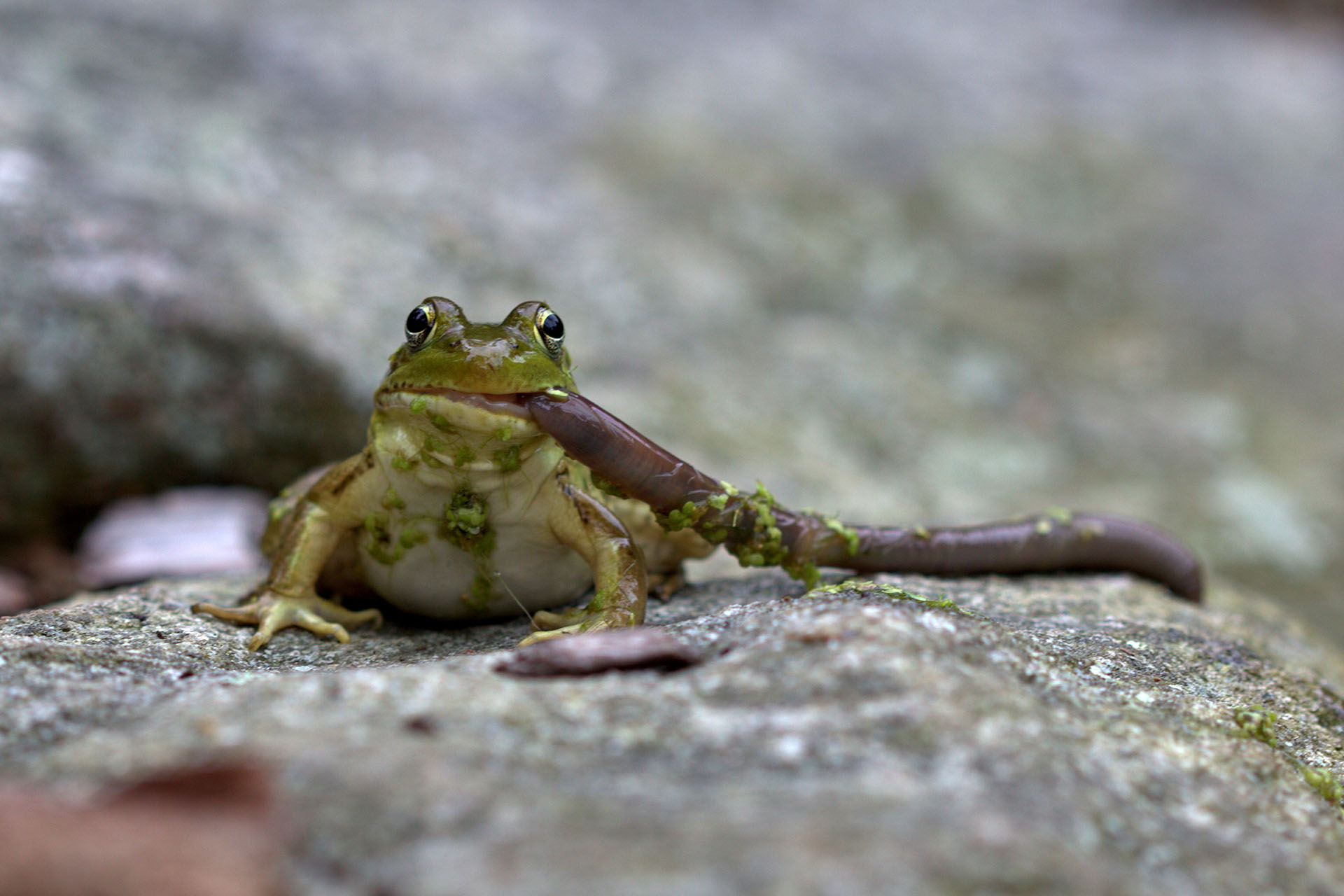
Feed the fish – and the frogs! © waysidelynne, Shutterstock
faunatopics GmbH supplies customers throughout Europe with a wide range of food insects. For our cooperation, we source food insects from six feet to eat GmbH, which was acquired by faunatopics and is based in Schnürpflingen. All common food insect species are bred there in food quality.
CC participants can purchase feed from six feet to eat at discounted prices for their animals – even for privately kept animals that are not part of a CC conservation breeding programme. In addition, school zoos receive a monthly voucher of € 5 from a value of € 30 per order. fauna topics also donates 5% of the turnover of all orders to Citizen Conservation.
- Home
- Archive by Category "Participation"
Contact
Citizen Conservation Foundation gGmbH
Reichenberger Street 88
10999 Berlin
Germany
Phone: +49 (0) 30 92 10 13-223
Mail: info |at| citizen-conservation.org
Web: www.citizen-conservation.org
- Home
- Archive by Category "Participation"
Contact
Citizen Conservation Foundation gGmbH
Reichenberger Street 88
10999 Berlin
Germany
Phone: +49 (0) 30 92 10 13-223
Mail: info |at| citizen-conservation.org
Web: www.citizen-conservation.org
